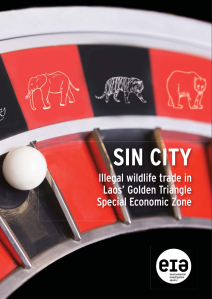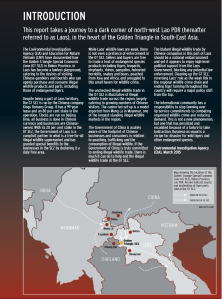
Behind Thailand’s coup is a fight over the king and his successor. But it’s hush-hush.
By Chico Harlan. June 7, 2014
Author:Phuong Nguyen,CSIS, Washington
Click on the link to get more news and video from original source: http://www.washingtonpost.com/world/behind-thailands-coup-is-a-fight-over-the-king-and-his-successor-but-its-hush-hush/2014/06/05/d0cac579-374c-4671-b418-b8dda46c76ed_story.html

Thai King Bhumibol Adulyadej takes pictures during the royal ploughing ceremony in Bangkok. The king has semi-divine status after almost seven decades on the throne. (PORNCHAI KITTIWONGSAKUL/AFP/Getty Images)
BANGKOK — It’s hard in Thailand to have a meaningful discussion about the country’s most meaningful institution: the monarchy. Laws ban any criticism of the king. Salacious palace intrigue is off-limits. So is any exploration of what may be the ailing king’s final major decision: his succession.
But it’s the uncertainty over that power hand off that forms the silent backdrop to Thailand’s intensifying political instability.
King Bhumibol Adulyadej has semi-divine status after almost seven decades on the throne, but his son, the crown prince, is far less revered. Many scholars outside Thailand say the political tug of war in Bangkok is really a competition to hold power when the king passes away, a moment when Thailand could have at least a partial power vacuum.
“It’s like a musical chairs game,” said Ernest Bower, an expert on Southeast Asia at the Center for Strategic and International Studies. “When the music stops — when the king dies — whoever has power gets to organize the next steps.”
For most of the 20th century, the Thai king was a guarantor of relative political stability — a unifying force amid coups, constitutional changes and bloodshed. When needed, he could call dueling faction leaders before him and chastise them. The bloodshed would stop.
President Dwight D. Eisenhower welcomes Thai King Bhumibol Adulyadej and Queen Sirikit to Washington in 1960. (AP)
King Bhumibol Adulyadej, Queen Sirikit, Crown Prince Vajiralongkorn and Princess Ubolratana sit on the steps of Chitralada Palace in 1955. (AP)
This time around, though, the king appears too frail to play such a role and has not been seen publicly since a May 22 coup. The military takeover — endorsed near the end of May by the palace — came after seven months of street protests against the Thai government, which was led at the time by prime minister Yingluck Shinawatra, a member of Thailand’s most divisive political family. Yingluck’s party — which has the critical backing of her older brother Thaksin Shinawatra — remains popular in the rural north but is loathed by elites in Bangkok. Those elites often describe themselves as royalists.
Thaksin-supported candidates have prevailed in every national election since 2001, but in almost every case those leaders have been ousted in dubious judicial rulings or military coups that have the support of the wealthy Bangkok establishment. Those who oppose Thaksin say he has allowed rampant corruption and consolidated power among his family and friends. The most vicious charge of all is that Thaksin so covets power, he poses a threat to the monarchy.
 Soldiers stand guard at the criminal court in front of a portrait of Thailand’s King Bhumibol Adulyadej in Bangkok. (Chaiwat Subprasom/Reuters)
Soldiers stand guard at the criminal court in front of a portrait of Thailand’s King Bhumibol Adulyadej in Bangkok. (Chaiwat Subprasom/Reuters)Some experts say that the military could seek to hold power until the king’s death. Thailand’s new military ruler, Gen. Prayuth Chan-ocha, has a reputation as a staunch monarchist and has warned that violations of the lèse-majesté law — a broad rule that bans anything offensive against the monarchy — will be heard in military, rather than criminal, courts.
A working king
Thais pay homage to the king in ways both big and small. His face is on every coin and banknote. Massive golden-framed portraits hang in front of office buildings, in restaurants and along highways, portraying different periods in his life. Before viewing movies, Thais stand for a royal anthem. The king is described rarely by name: “His Majesty,” Thais say. The best-selling book in Thai history is a lighthearted biography written by the king about his favorite dog.
Born in Boston, where his father was studying medicine, King Bhumibol inherited the throne at age 19 after the mysterious death of his older brother. He arrived in Thailand at a time when the monarchy’s power appeared in decline. The king managed to reverse this with what Thais viewed as a lifetime of selfless acts. He visited far-flung rural areas wearing common clothes, a camera slung around his neck. He bankrolled thousands of royal projects, many that aimed to help villages improve their agriculture and irrigation. Famously, he was never seen smiling; he projected leadership as a somber task.
 King Bhumibol salutes members of his royal Guard during Trooping of the Color ceremonies in Bangkok. (DAVID LONGSTREATH/AP)
King Bhumibol salutes members of his royal Guard during Trooping of the Color ceremonies in Bangkok. (DAVID LONGSTREATH/AP)“I would say he is a working king,” said Sakarindr Bhumiratana, who has been involved for three decades with royal development projects. “Each night on television you’d hear of him being somewhere in Thailand — somewhere far away, somewhere in great need. He was there, looking to help people.”
With his health in decline, King Bhumibol has retreated to the coastal Klaikangwon Palace, whose name means “far from worries.” His condition is treated as a state secret, as is the palace role in politics. Technically, the king is a political bystander, able only to approve or veto decisions made by the parliament. In rare public cases where the king has intervened, Thais have almost always come to view his moves as selfless, the sagacious decision of somebody duty-bound to his people.
The king has almost never allowed himself to be seen in public with generals and politicians, who were seen as far less virtuous and whose power was fleeting by comparison.
 Thaksin has carefully tried to cultivate a good relationship with the crown prince — something that would play to his advantage after the succession. (Achmad Ibrahim/AP)
Thaksin has carefully tried to cultivate a good relationship with the crown prince — something that would play to his advantage after the succession. (Achmad Ibrahim/AP)Thaksin’s rise and fall
Thaksin rose to prominence in Thailand as the king transitioned into a less public role. Elected as prime minister in 2001, Thaksin was the first Thai politician to seek to curry favor with the countryside, providing low-cost health care and debt forgiveness to a previously disenfranchised group of voters. The result: A multi-billionaire telecom tycoon became the voice of the masses.
Thaksin was deposed in a 2006 military coup and lives in self-imposed exile in Dubai, graft charges awaiting him back home. In recent years, Thaksin has been portrayed by many in Bangkok as a puppet master, controlling his political party — and most recently, his sister.
Thaksin has long proclaimed his adoration of the king. Opponents see it differently. A 2010 U.S. diplomatic cable, released by WikiLeaks, described one monarchy loyalist as saying that the “King’s health and mood remained poor ‘primarily because of Thaksin’ and the challenge Thaksin posed to the stability of the country.”
Whatever the case, Thaksin has carefully tried to cultivate a good relationship with Crown Prince Vajiralongkorn — something that could play to his advantage after the succession. Thaksin opponents have for years expressed concerns about his intentions, saying he wants to become Thailand’s first president, with more executive power than he had as prime minister.
 Thai pro-government protesters sit next to portraits of Yingluck and Thaksin. (Pornchai Kittiwongsakul/AFP/Getty Images)
Thai pro-government protesters sit next to portraits of Yingluck and Thaksin. (Pornchai Kittiwongsakul/AFP/Getty Images)“He wants total control,” said Kasit Piromya, a former Thai foreign minister and ambassador to the United States. “He wants to put the royal family in a golden cage.”
Thaksin has defended himself against all such charges, saying they are politically motivated, and has filed a series of defamation suits against those who have criticized him, including Kasit.
In Thailand, discussing Thaksin’s feelings about the monarchy is fair game, a topic not protected by lèse-majesté. But blogs and foreign accounts that detail Thaksin’s relationship with the prince are blocked. No tabloids serve up delicious gossip about the monarchy’s inner workings. Even academic work about the monarchy is severely limited.
Over the years,theenforcementoflèse-majesté law has waxed and waned. But recent governments have aggressively pursued cases, warning that even “liking” material considered offensive on Facebook could lead to charges. As a result of the restrictions, the Thai monarchy remains a “black hole,”said PavinChachavalpongpun, an associate professor at the Center for Southeast Asian Studies at Kyoto University.“You are not supposed to talk about anything,”Pavin said. “Well, anything but glorification.”
After months of violence, Thailand’s military went from declaring martial law to seizing control of the government. Here are the facts to know. (Casey Capachi/The Washington Post)
Chico Harlan covers personal economics as part of The Post’s financial team.
 The premise of “The Last Unicorn” is simple: DeBuys tagged along with biologist William Robichaud for a trek through the forests and waterways of central Laos searching for evidence of an extremely rare animal called a saola. Discovered by most of the world in 1992, saola share some of their DNA with wild cattle, but they are unique for the two horns, growing up to half a meter long, that extend from their head and sweep back over their body. Seen in profile, the horns merge into one, making the animal resemble the mythical beast that legend has it could only be glimpsed by the pure of heart.
The premise of “The Last Unicorn” is simple: DeBuys tagged along with biologist William Robichaud for a trek through the forests and waterways of central Laos searching for evidence of an extremely rare animal called a saola. Discovered by most of the world in 1992, saola share some of their DNA with wild cattle, but they are unique for the two horns, growing up to half a meter long, that extend from their head and sweep back over their body. Seen in profile, the horns merge into one, making the animal resemble the mythical beast that legend has it could only be glimpsed by the pure of heart.












